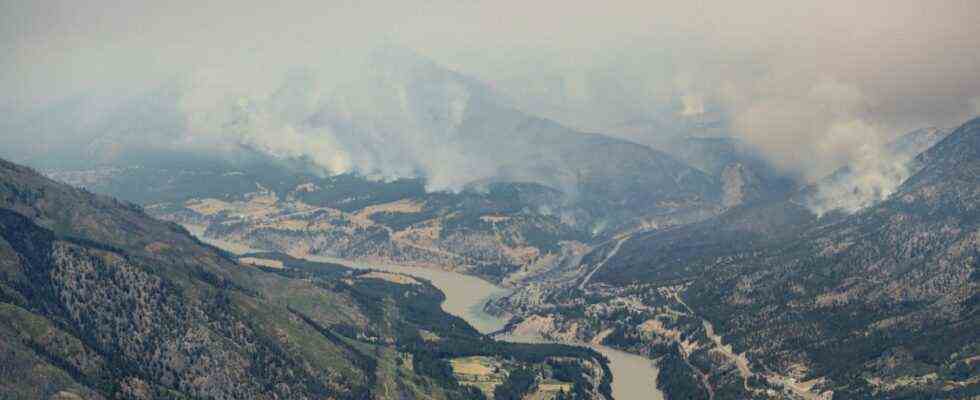No, it is not just bad luck what happened to the village of Lytton, British Columbia. First the place recorded heat records for three days in a row, most recently a scorching 49.6 degrees, the highest value ever measured in Canada. And then a forest fire raged over Lytton, the entire town center burned down, around 1000 people had to flee. Around Lytton alone, fires were out of control over around 90 square kilometers at the end of the week.
There have always been forest fires, but it has been seen all too often how much drought and heat can accelerate them. There has also always been drought and heat, but not to this extent. The historic heat bell that lay over northwest North America last week was life-threatening, especially for elderly and weak people. The number of sudden deaths recorded in British Columbia was nearly three times higher during the five days of extreme heat and is likely to increase with late reports. Around 300 more people than usual died without prior illness, in a population of just five million.
Even in Germany you can see the consequences of very hot periods in the death statistics
Even in Germany, which has so far been spared from such heat, the effects of very hot periods can be seen in the death statistics. There has been a severe heat wave each of the past three summers, and has always been accompanied by a sharp increase in the weekly death toll of a few thousand cases; a causal connection is at least obvious. According to an analysis by the British Met Office, a summer of the century like the one in 2003, when an estimated 30,000 to 70,000 people died from the heat in Europe, could already be be normal in the 2040s. These figures show how much climate change is already a painful reality even in mid-latitudes: because it increases the background temperature before heat waves occur, and presumably also changes weather patterns so that heat can linger longer.
It is too late to prevent this from happening. But you can do damage control by cutting emissions as fast and as drastically as you possibly can. And it’s high time to adjust. Cities heat up particularly strongly, where green roofs or facades, more street trees and evaporation surfaces can help – by the way, at the same time a protection against increasing heavy rain events and a blessing for nature. Alarm systems, cooling zones or heat protection plans can also be useful, as well as better forest fire prevention.
For thirty years the world failed to take effective measures against climate change, which is what made this adaptation necessary. It should not be approached with the same arrogance.

